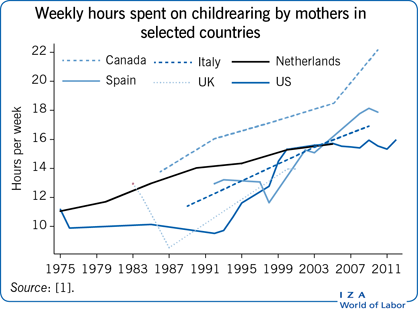Elevator pitch
Parents now engage in much more intensive parenting styles compared to a few decades ago. Today’s parents supervise their children more closely, spend more time interacting with them, help much more with homework, and place more emphasis on educational achievement. More intensive parenting has also led to more unequal parenting: highly educated parents with high incomes have increased their parenting investments the most, leading to a growing “parenting gap” in society. These trends can contribute to declining social mobility and further exacerbate rising inequality, which raises the question of how policymakers should respond.
Key findings
Pros
The rise in intensive parenting coincided with a period of rising inequality and rising returns to education.
The largest increase in parenting time is for education-oriented activities such as helping with homework.
Intensive parenting is particularly widespread in countries with high inequality, whereas in low-inequality countries permissive parenting is still common.
Intensive parenting styles are associated with higher educational achievement for children and upward social mobility.
Cons
Parents who push their children hard toward achievement are less able to instill other values such as independence or creativity.
There are concerns that intensive parenting increases pressure on children and may be associated with anxiety and depression.
The rise in intensive parenting has resulted in a parenting gap, meaning that parenting investments are unequal across the socio-economic scale.
At the societal level, intensive parenting and a rising parenting gap can contribute to persistent inequality and low social mobility.
